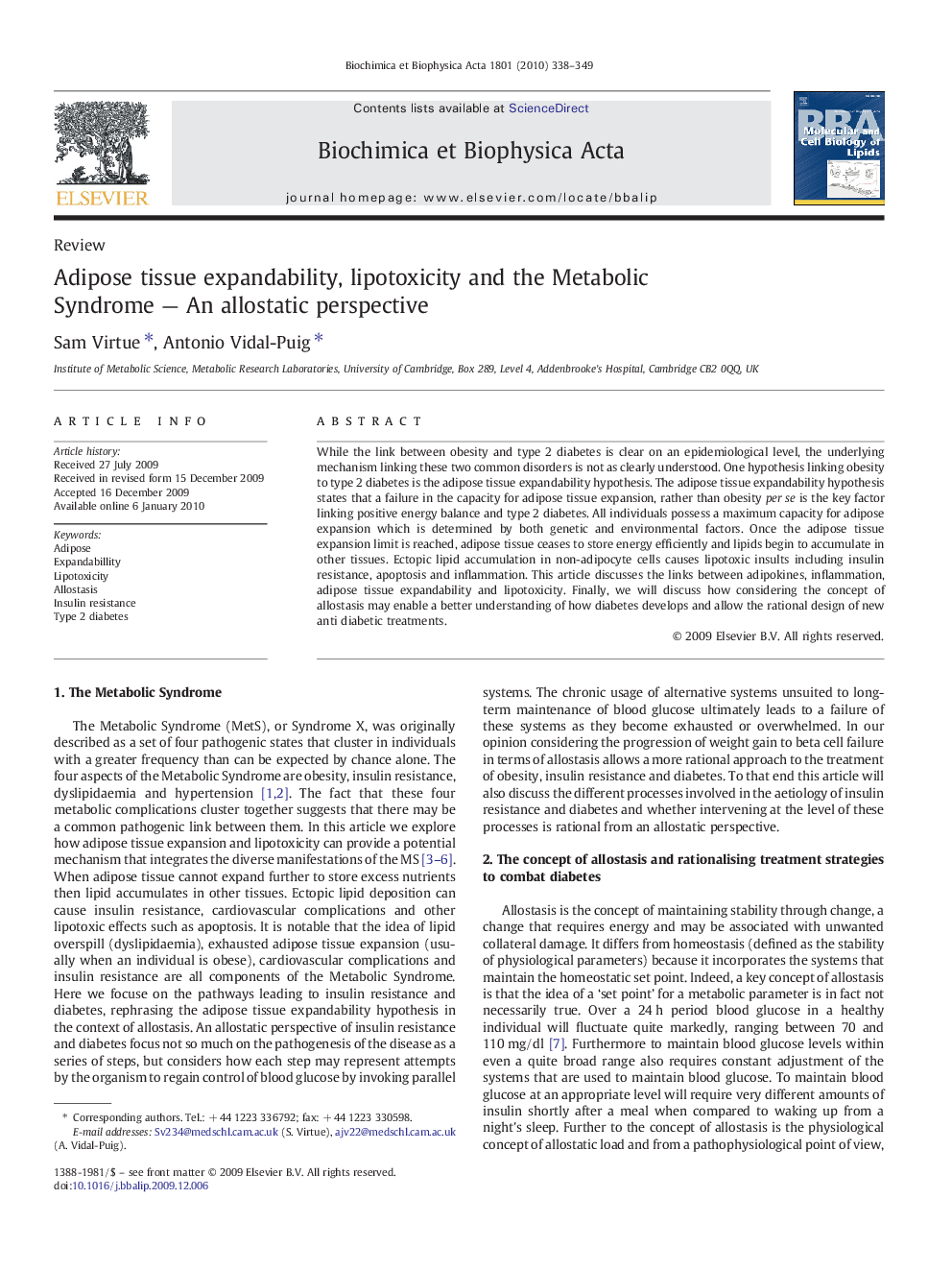| کد مقاله | کد نشریه | سال انتشار | مقاله انگلیسی | نسخه تمام متن |
|---|---|---|---|---|
| 1949812 | 1537779 | 2010 | 12 صفحه PDF | دانلود رایگان |

While the link between obesity and type 2 diabetes is clear on an epidemiological level, the underlying mechanism linking these two common disorders is not as clearly understood. One hypothesis linking obesity to type 2 diabetes is the adipose tissue expandability hypothesis. The adipose tissue expandability hypothesis states that a failure in the capacity for adipose tissue expansion, rather than obesity per se is the key factor linking positive energy balance and type 2 diabetes. All individuals possess a maximum capacity for adipose expansion which is determined by both genetic and environmental factors. Once the adipose tissue expansion limit is reached, adipose tissue ceases to store energy efficiently and lipids begin to accumulate in other tissues. Ectopic lipid accumulation in non-adipocyte cells causes lipotoxic insults including insulin resistance, apoptosis and inflammation. This article discusses the links between adipokines, inflammation, adipose tissue expandability and lipotoxicity. Finally, we will discuss how considering the concept of allostasis may enable a better understanding of how diabetes develops and allow the rational design of new anti diabetic treatments.
Journal: Biochimica et Biophysica Acta (BBA) - Molecular and Cell Biology of Lipids - Volume 1801, Issue 3, March 2010, Pages 338–349